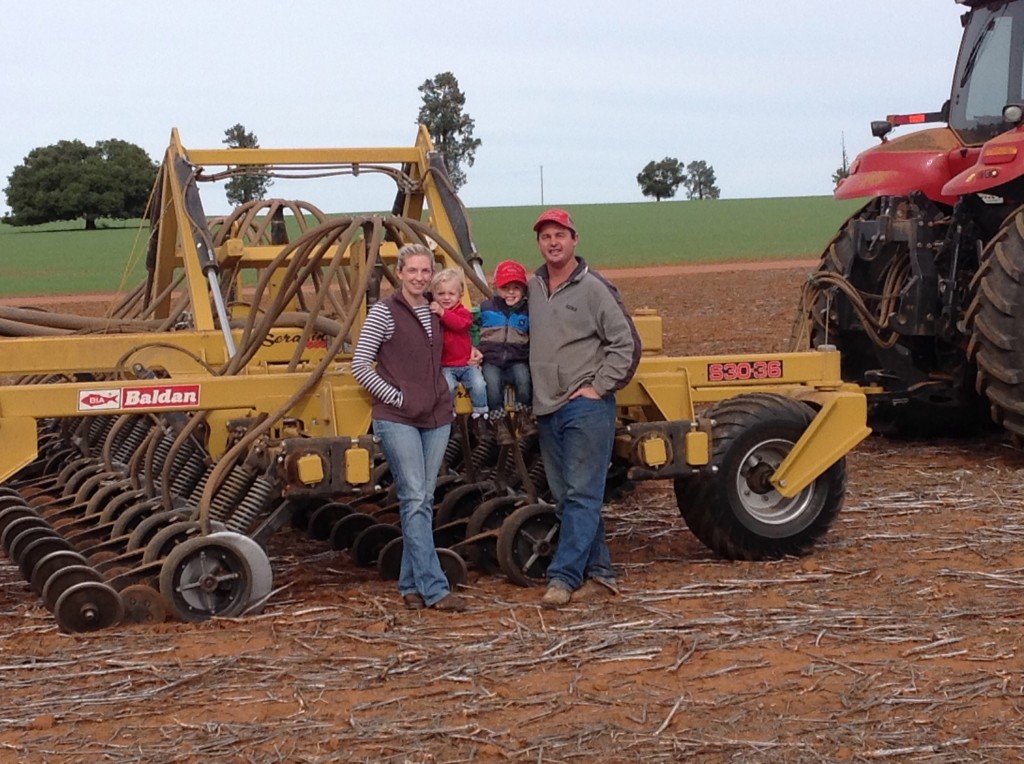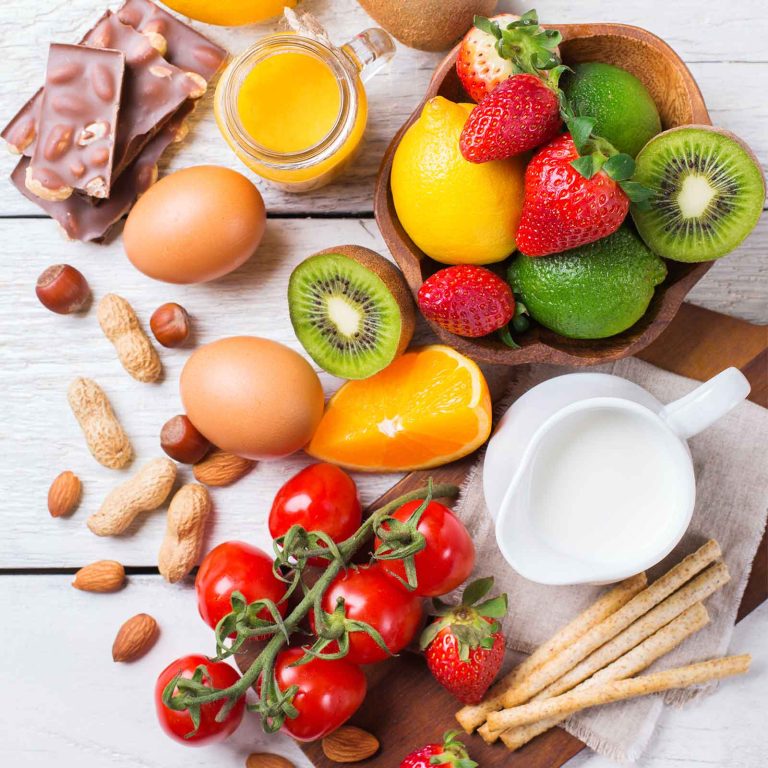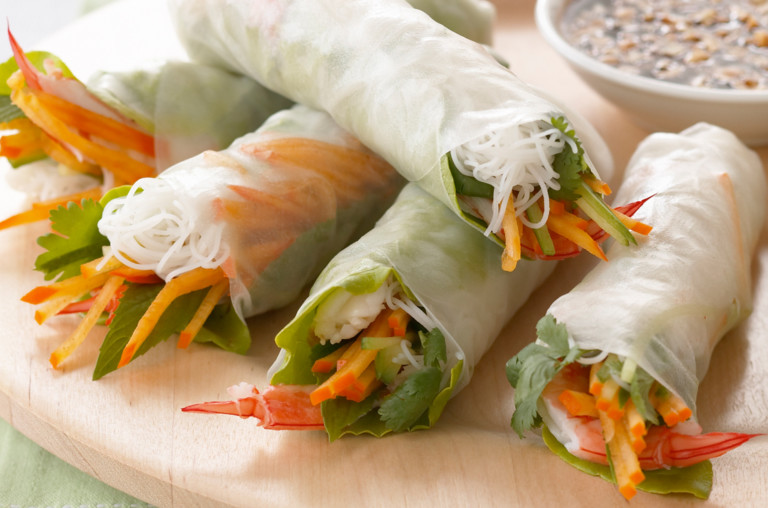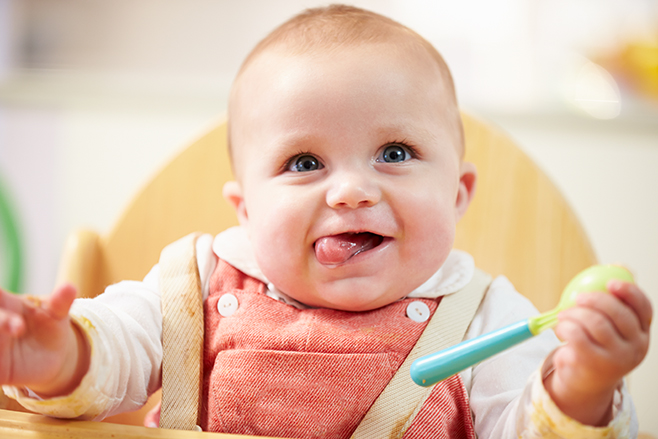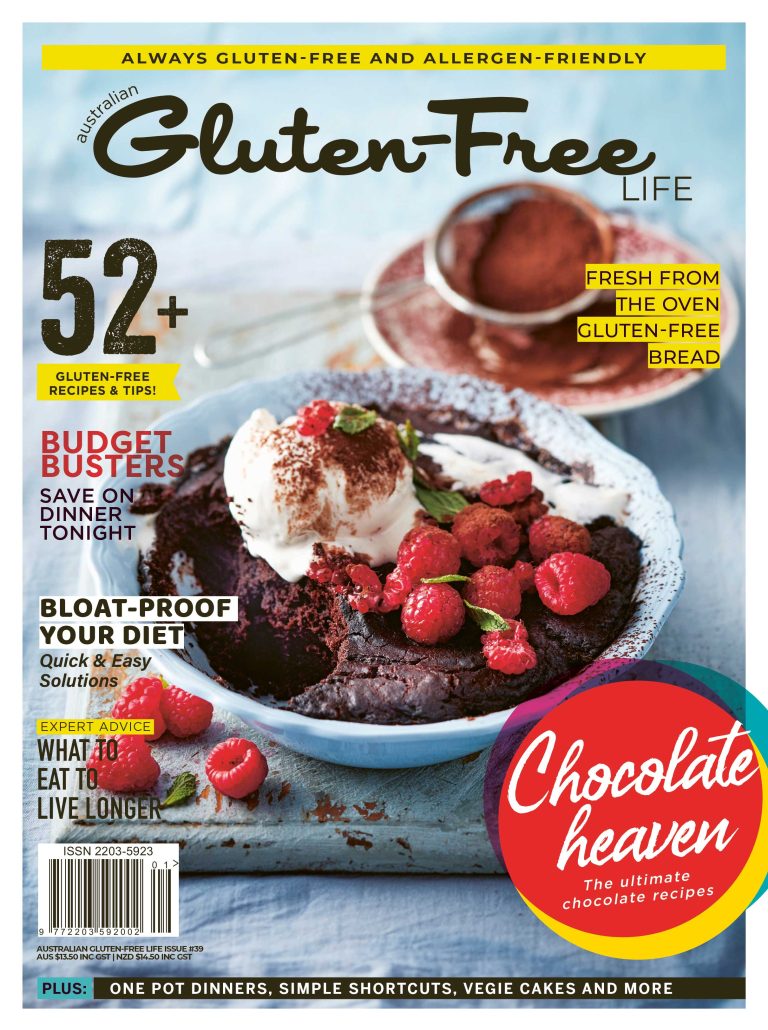Robyn Buerckner lives with her husband Paul and two children on a wheat farm in the Riverina region of NSW. Her son was diagnosed with coeliac disease two years ago. Six months later her husband Paul learnt that he too was a coeliac. She shares her story with us.
Paul is the fourth generation owner of our home property. He finished school after year 10, 21 years ago, to come home to the family farm to follow his dreams of being a farmer. His parents handed the farm onto Paul in 2005.
There was no history of coeliac disease in either of our families. When our first child (Jake, now three) was nine months old and started eating solids like Weet-Bix, toast and pasta he would often vomit after eating. He stopped gaining weight, wasn’t getting taller and his head wasn’t growing. By the time he was 14 months I was convinced there was something wrong. After consulting our GP we were referred to a paediatrician who immediately suspected coeliac disease. An endoscopy at 16 months confirmed the diagnosis. As coeliac disease is genetic, Paul and I were advised to also be tested. I had my test straight away. Paul had a suspicion he may have had coeliac disease so he waited three months before his test. Following Paul’s blood test he had an endoscopy confirming coeliac disease. He was 37.
Paul dealt with the news like someone grieving. First denial. He thought the test was wrong, he thought having an upset stomach was normal and that going gluten free would be impossible and would make no difference. Then he got angry and you can imagine telling an Aussie bloke they can no longer drink beer, eat pies or enjoy a mixed grill smothered in gravy. Then he bargained, “what if I eat gluten-free some of the time?” That’s when I booked him in the see a nutritionist to explain how gluten would affect him.
He wouldn’t go gluten free until the end of the footy season because he thought he could never enjoy the time in the sheds after the game without a beer. The first thing Paul researched on coeliac disease was gluten free beer.
Despite the diagnosis Paul has never considered a career change. It’s in his blood and has been in his family for generations. Being a coeliac does have some inconveniences as a wheat farmer. You test wheat to see if it’s ripe by biting on the grain. Out of habit Paul did this but luckily he was newly gluten-free and it didn’t affect him. If you chew wheat grains enough it will turn into gum. In the past he would spend most of harvest chewing on wheat gum, that’s changed. We have briefly looked into growing other gluten-free grains but our conditions don’t suit it and the restrictions on cross contamination when harvesting and processing makes it impossible at the moment.
In our small community there are quite a few coeliacs, which is lucky for me. They organised a supermarket tour educating me on reading labels and pointing out what mainstream food is gluten-free. The Coeliac Society was also very helpful. Cooking at home now is no problem.
Eating out is hard because you feel like you’re being a burden asking about gluten-free options then worry if the food is actually gluten-free. Especially when one place responded “the heat of the oil will cook the gluten out of a schnitzel.” Being in a rural area we don’t have the variety of bigger centres but it is definitely improving in the short time we have been sourcing gluten-free food.
People are very understanding of Jake’s diet. If it had been 10 years ago I imagine this would be a very different story. The town we live in has 500 people and I know of ten who follow a gluten-free diet. We have a Facebook page that we use to tell each other about new products, recipes or places to eat.
As Jake is quite sensitive he knows if he eats something he shouldn’t he will vomit in a matter of hours. He will ask me if something is gluten free-before he eats it now. He does get disappointed when he can’t have something but we are grateful that coeliac disease is just a change in diet as there are much worse conditions we could have to deal with.
This story appeared in Australian Gluten-Free Life Issue One as Gluten-Free Warrior The Wheat Farmer’s Dilemma
Would you like to share your Gluten-Free Life with our readers? Contact us today.

